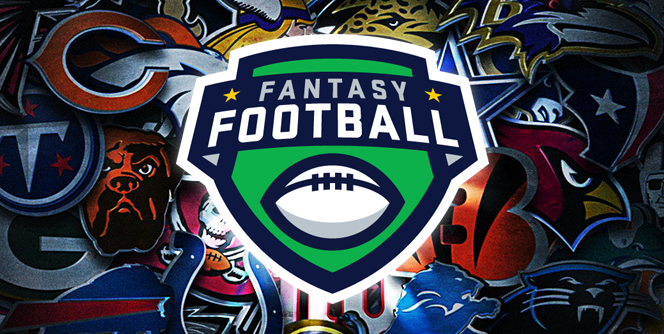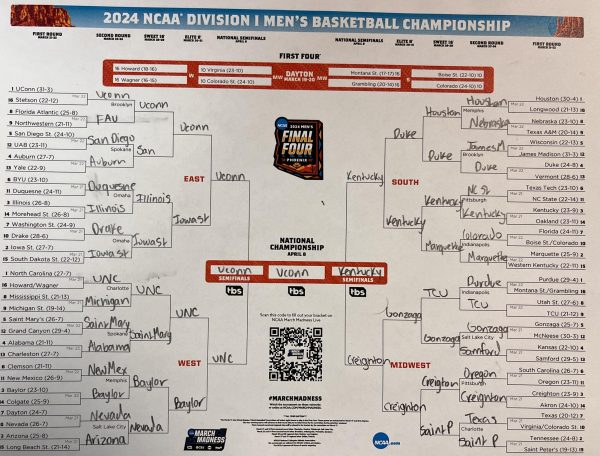Wanna Play?
A how-to for fantasy football
Fantasy football is a game that will make you watch football for over ten hours. The idea of Fantasy football was brought up as early as the 1960s. Wilfred “Bill” Winkenbach, a business partner of the Oakland Raiders, first thought of the idea in a hotel room with an Oakland Tribune reporter. The rules they made would eventually turn into the basic rules for modern-day fantasy football.
The rules of fantasy football are very precise. Only a certain number of people are in a league. There could be four, or 32, depending on what the manager wants. Then from there, you draft.
It’s randomized what picks you can get. Once you do get your pick, you can choose anyone you want, but there are strategies to drafting. You can either go wide receiver heavy or running back heavy. This just means you either draft a lot of wide receivers or a lot of running backs.
Your first pick could determine your whole season, so I recommend that you draft wisely. I personally believe that you should draft a wide receiver first. I believe this because the position, running back, is very expandable. Then after your first and second picks, go for any position that you don’t have. For example, If you chose both running backs, get a receiver with your third and fourth pick. Then after the fourth round, you should draft your quarterback. I believe you should do so because it’s almost impossible to trade for one or try to draft one later on. The quarterback position is also how you get the majority of your points.
After drafting the quarterback, you should draft a tight end and a flex. In drafting a tight end, you should just draft what is at the top. The tight end position is the least point-heavy position in fantasy football. So get whatever you can get. The flex position is a position where you can insert a wide receiver, running back, tight end and even a kicker. Therefore, it’s very easy to find yourself a flex in the seventh or eighth round.
Then after the eighth round, draft depth. “Depth” is draft positions where you don’t have a lot of, or draft backups or replacements. These rounds are mainly for “insurance.” Meaning, in case one of your starters gets injured, you have a replacement.
Then finally in the tenth and eleventh rounds, you will need to draft a defense and a kicker. These two positions are the easiest to neglect in fantasy football. They may not seem important, but they can generate a substantial amount of points. The way to go about drafting these positions is defense first. While defenses can give you points, they can also give out negative points. This can happen if the defense is scored. So drafting a defense first is essential. Drafting a kicker in the later rounds can still give you good options. By the time most people draft a kicker, it’s the last three rounds, so just draft whoever is available.
After the draft, players will have projected points. In starting the lineup, choose the players with the most points. Then you have your matchup or the person who you are going against. It’s straightforward in order to win, you just have to get more points than your matchup. Each matchup is a week of football, Monday, Thursday and Sunday. You cannot change the players after they have played. If one of your players performs badly, you cannot swap them out.
If trading your team didn’t work for you, there’s a slim option for you– the waiver wire. The waiver wire is an option where you can pick up players who did not get drafted. There are plenty of players who have had amazing years and have gone undrafted.
A great example of this is when Deebo Samuel, a San Francisco wide receiver had a breakout year in the 2021-2022 season. He went undrafted and ended up averaging 20.9 points, which ranked him 11 among all the wide receivers. This year the star of the waiver wire, was rookie, Kenneth Walker III, of the Seattle Seahawks. Now in the last seven games, he has averaged 16.7 points, with almost the whole backfield to himself. So the waiver wire can be amazing, and there are no negatives to gaining a player either because you can always drop them for another player.
Fantasy football is a game of luck and strategy. And you have to remember, fantasy football goes on for nearly four and a half months, so anything can happen, and things can change. Fantasy football is also a great way to get familiar with players, or teams you don’t know much about. In conclusion, fantasy football is a very emotional game that can determine how you watch football for five months, so remember, draft wisely.













